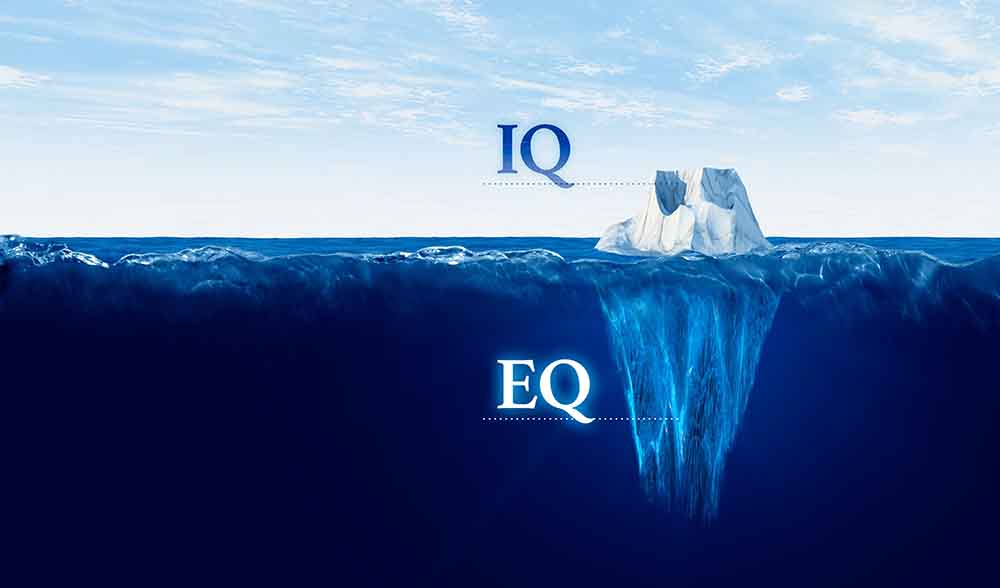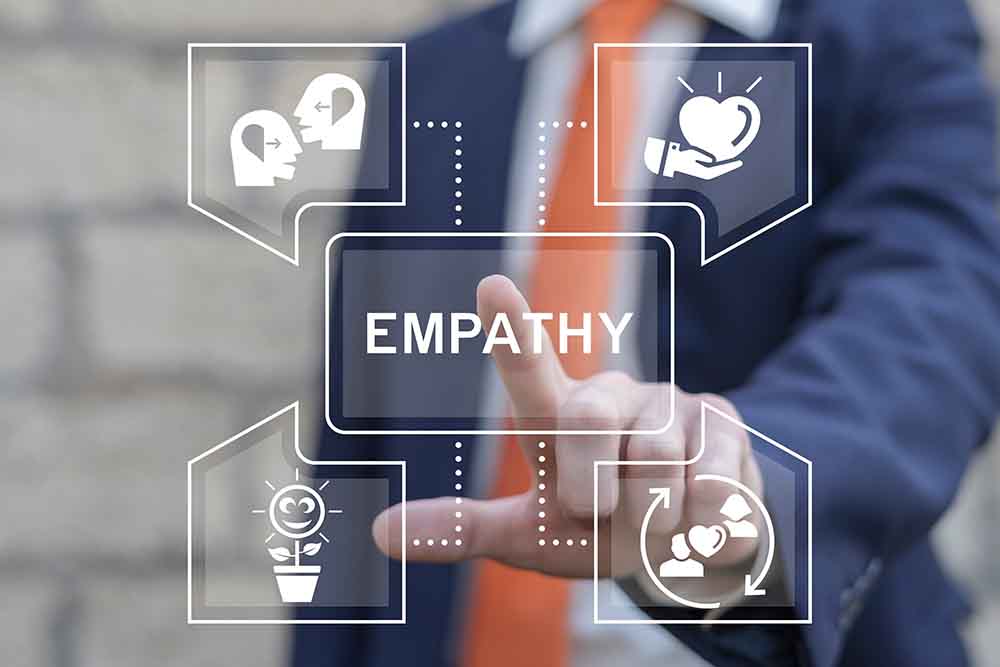Emotional intelligence (EQ) is a critical aspect of human functioning that goes beyond traditional measures of intelligence, such as IQ. It refers to the capacity to recognise, understand, manage, and effectively utilise emotions—not just in ourselves, but also in the people around us. This ability enables us to navigate social complexities, guide our thinking and behaviour, and adjust to varying emotional environments. EQ covers a wide range of competencies, including empathy, emotional awareness, relationship management, and social skills, all of which are essential for effective communication and connection.
The significance of emotional intelligence extends beyond its immediate role in personal emotions. It plays a central part in how we perceive the world, influencing our decision-making, coping mechanisms, and how we manage stress. For example, individuals with high EQ are better equipped to remain calm under pressure, think clearly when emotions are high, and make rational decisions in the midst of emotional turmoil. They are also able to build stronger interpersonal relationships, as they can understand others’ emotional states, respond empathetically, and manage social interactions with greater sensitivity.
The importance of emotional intelligence in our daily lives cannot be understated. Whether it’s in professional environments where teamwork, leadership, and conflict resolution are crucial, or in personal settings like family dynamics and friendships, emotional intelligence impacts the quality of our interactions and relationships. The ability to understand your own emotions and those of others leads to more thoughtful and compassionate actions, improving both individual well-being and collective harmony.
Why Emotional Intelligence is Important
Understanding the importance of emotional intelligence can profoundly impact both personal and professional growth. Unlike IQ, which remains relatively stable over time, EQ is a flexible and dynamic skill that can be developed and improved at any stage of life. Here's why emotional intelligence is crucial:
1. Improves Relationships: Whether in personal or professional settings, EQ helps you understand the emotional states of others, leading to better communication and stronger relationships.
2. Enhances Leadership Skills: Emotionally intelligent leaders can motivate and inspire their teams, effectively managing conflicts and fostering a positive work environment.
3. Promotes Mental Well-being: Managing your emotions effectively reduces stress, anxiety, and frustration, contributing to better mental health.
4. Boosts Decision Making: People with high EQ can assess emotional information, which can lead to more informed and balanced decisions.
5. Increases Empathy: Understanding others’ feelings and perspectives enhances empathy, fostering meaningful and harmonious connections.
Ultimately, emotional intelligence is essential for anyone looking to lead a fulfilling and socially connected life.

The Four Components of Emotional Intelligence
Emotional intelligence can be broken down into four key components, each playing a vital role in personal and interpersonal effectiveness.
1. Self-awareness
Self-awareness is the ability to recognise and understand your own emotions. It involves being conscious of your emotional triggers and how they influence your thoughts and behaviour. This is the cornerstone of emotional intelligence, as self-awareness sets the foundation for the other components.
2. Self-regulation
Self-regulation refers to the ability to control and manage your emotions, particularly in stressful situations. It helps you remain calm, avoid impulsive decisions, and express your feelings appropriately. By mastering self-regulation, you can handle challenges more effectively without letting emotions overrun logic.
3. Social Awareness
Social awareness involves the ability to understand the emotions of others, often referred to as empathy. It includes recognising social cues and understanding group dynamics. This component is crucial in building relationships, as it helps you navigate social interactions and respond compassionately to others.
4. Relationship Management
The final component, relationship management, focuses on how well you can build and maintain positive relationships. This involves effective communication, conflict resolution, and the ability to influence and inspire others. Relationship management is particularly important in leadership and teamwork settings.
How to Develop Emotional Intelligence
Developing emotional intelligence is a lifelong journey, but it’s one that yields significant benefits. You can cultivate this skill through conscious effort and practice. Here's how you can develop emotional intelligence:
1. Practice Self-Reflection
Take time to reflect on your emotions and the events that trigger them. Journaling your thoughts and feelings can help you become more self-aware. Evaluate how you react to different situations and consider what you could improve.
2. Learn to Manage Stress
Stress can cloud your judgment and negatively impact your emotional regulation. Practice techniques such as deep breathing, mindfulness, or meditation to manage stress and stay grounded during emotionally challenging situations.
3. Improve Empathy
To improve empathy, practice active listening. Make an effort to understand the emotions behind people’s words and respond to their needs accordingly. Engage in conversations with an open mind, without judgment or preconceived notions.
4. Work on Communication Skills
Develop strong communication by being mindful of both verbal and non-verbal cues. Learning how to express yourself clearly and actively listen to others will help you build deeper, more meaningful connections.
5. Seek Feedback
Ask for honest feedback from friends, family, or colleagues regarding your emotional responses and interactions. This will provide you with valuable insights into areas where you might need improvement.
Practical Tips to Improve Emotional Intelligence
Improving emotional intelligence is not just about knowing the theory but putting it into action. Here are some practical tips to improve emotional intelligence:
1. Practice Mindfulness: Engage in mindfulness exercises such as meditation to become more present in your emotions and reactions. This will help you slow down and respond thoughtfully to emotional stimuli.
2. Observe Non-Verbal Communication: Pay attention to body language, facial expressions, and tone of voice when interacting with others. This can give you insights into their emotional state, which words alone may not reveal.
3. Cultivate Empathy Through Volunteering: Engage in activities that put you in contact with diverse groups of people, such as volunteering. This will expand your emotional range and help you develop empathy for others' experiences.
4. Practice Emotional Labelling: When you experience strong emotions, take a moment to label them—are you feeling anxious, excited, or frustrated? By naming your emotions, you increase self-awareness and gain more control over your responses.
5. Take Responsibility for Your Emotions: Avoid blaming others for how you feel. Instead, take ownership of your emotions and understand that while you can't control what happens to you, you can control your response.

Effects of Emotional Intelligence
When emotional intelligence is actively developed and applied, it can have a transformative impact on various aspects of life. Here are some of the significant effects of emotional intelligence:
1. Enhanced Personal Relationships: Emotional intelligence fosters stronger personal connections by helping you understand others' needs, resolve conflicts, and build trust.
2. Increased Job Satisfaction: In professional environments, those with high EQ experience higher job satisfaction. They are often better at handling stress, communicating effectively, and collaborating with team members, which leads to improved workplace harmony.
3. Improved Leadership Ability: Leaders with high emotional intelligence can inspire their teams, manage group emotions, and resolve conflicts efficiently. They often promote a culture of empathy, which boosts team morale and productivity.
4. Better Mental Health: By managing your emotions, emotional intelligence reduces the risk of emotional exhaustion, anxiety, and depression. Understanding and processing emotions effectively leads to better mental health and resilience.
5. Greater Emotional Resilience: People with high EQ are better equipped to handle challenges, bounce back from setbacks, and maintain emotional balance during difficult situations.
Conclusion
In today’s fast-paced world, emotional intelligence is not just a desirable trait—it’s a necessity. It enhances your ability to navigate personal relationships, excel in professional settings, and maintain mental and emotional well-being. Developing emotional intelligence takes time and practice, but the benefits it brings to every area of your life are invaluable. Whether through self-reflection, mindfulness, or improved empathy, each step you take toward increasing your EQ is a step toward a more fulfilling, successful life.
FAQs
Can emotional intelligence be learned?
Yes, emotional intelligence is a skill that can be learned and improved at any stage of life through self-awareness, practice, and mindfulness.
Why is emotional intelligence important in leadership?
Emotionally intelligent leaders can motivate their teams, handle stress more effectively, resolve conflicts, and create a supportive work environment.
What are some ways to measure emotional intelligence?
Emotional intelligence can be measured through assessments like the Emotional Quotient Inventory (EQ-i) or the Mayer-Salovey-Caruso Emotional Intelligence Test (MSCEIT).
How can I improve my empathy?
You can improve empathy by practicing active listening, engaging in diverse experiences, and making a conscious effort to understand the emotions of others.
How does emotional intelligence impact relationships?
Emotional intelligence enhances relationships by improving communication, increasing empathy, and helping to manage conflicts more effectively.
Does emotional intelligence affect mental health?
Yes, emotional intelligence helps in managing emotions, reducing stress, and promoting better mental health by preventing emotional exhaustion and anxiety.